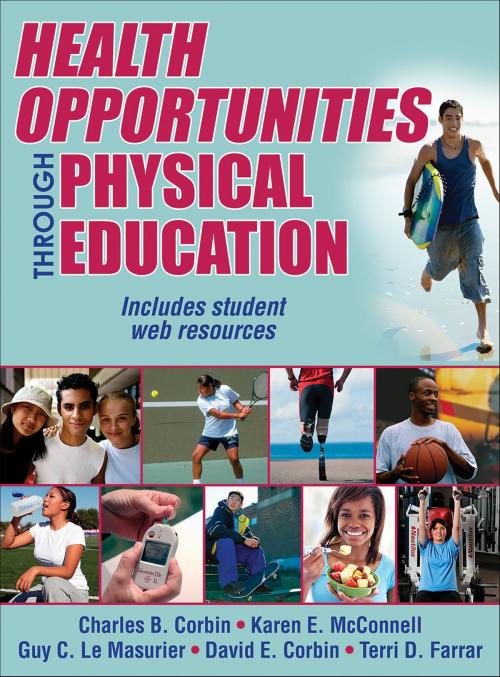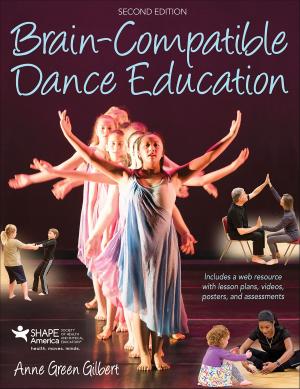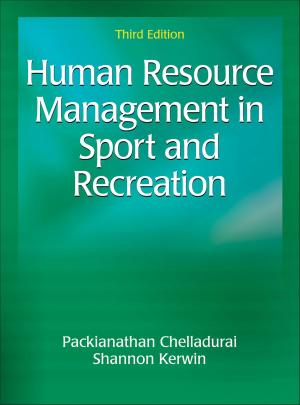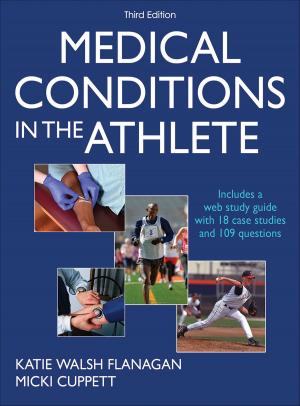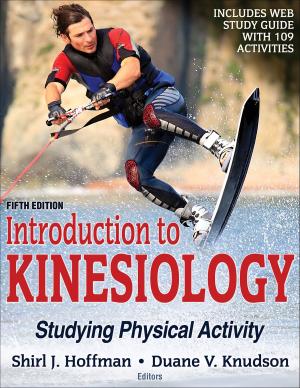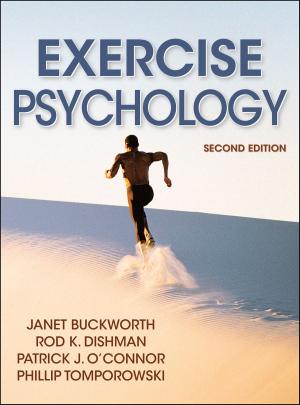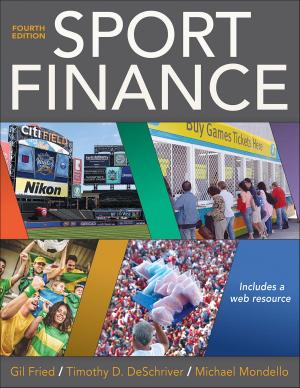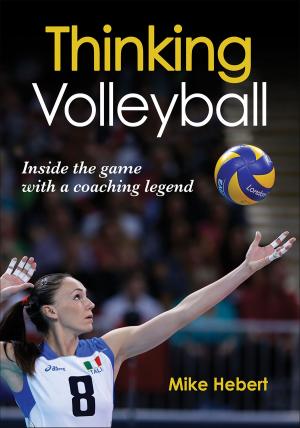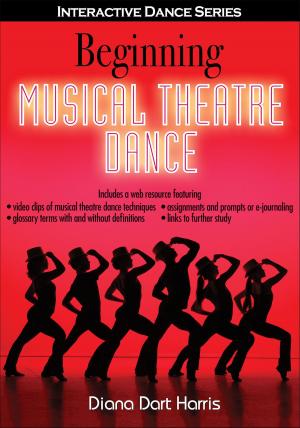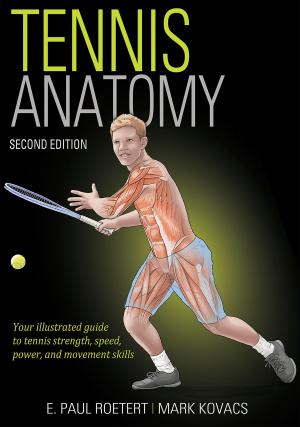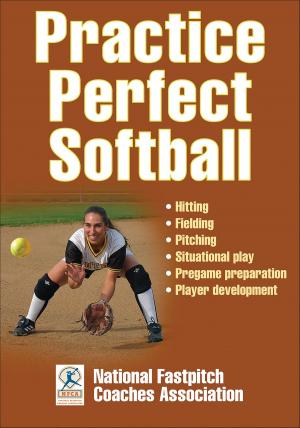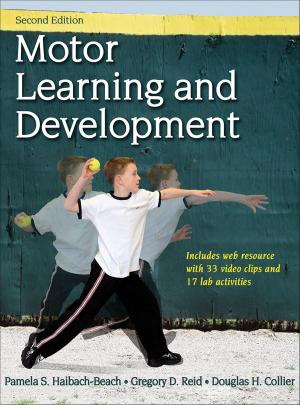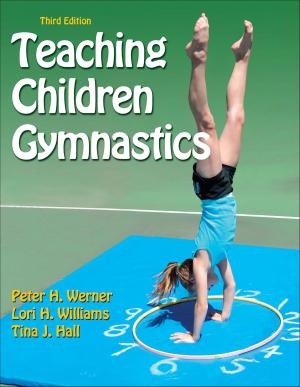Health Opportunities Through Physical Education
Nonfiction, Reference & Language, Education & Teaching, Secondary Education, Teaching, Teaching Methods| Author: | Charles B. Corbin, Karen E. McConnell, Guy Le Masurier, David E. Corbin, Terri D. Farrar | ISBN: | 9781492584872 |
| Publisher: | Human Kinetics, Inc. | Publication: | May 28, 2014 |
| Imprint: | Human Kinetics, Inc. | Language: | English |
| Author: | Charles B. Corbin, Karen E. McConnell, Guy Le Masurier, David E. Corbin, Terri D. Farrar |
| ISBN: | 9781492584872 |
| Publisher: | Human Kinetics, Inc. |
| Publication: | May 28, 2014 |
| Imprint: | Human Kinetics, Inc. |
| Language: | English |
This innovative new textbook, with a full suite of related resources, has been created to support student development and enhancement of healthy behaviors that influence their lifestyle choices and fitness, health, and wellness.
A key feature of this curriculum is the complete integration of physical education and health concepts and skills to maximize student interest, learning, and application. This objective was accomplished by combining the expertise of our author teams from two related textbooks--Fitness for Life, Sixth Edition, and Health for Life.
This is not just a health textbook with a few physical education concepts thrown in. School systems that want a single textbook to help them address both physical education and health education standards will find that this book provides them a unique and cost-effective option.
Health Opportunities Through Physical Education is available in print and digital formats, including an iBooks interactive version for iPads plus other e-book formats that students can use across a variety of platforms.
Part I, Fitness for Life, will help students become physically literate individuals who have the knowledge, skills, and confidence to enjoy a lifetime of healthful physical activity. The book will guide students in becoming informed consumers on matters related to lifelong physical activity and fitness, taking responsibility for setting individualized goals, and making their own plans for active living. To accomplish this overarching goal, they learn a variety of self-management skills, including self-assessment. The program is based on established educational theory, which is outlined in the teacher web resources. And they learn all of this through a combination of classroom and physical activity lessons that meet national, state, and local physical activity guidelines and help instill a love for lifetime fitness activities.
Part I also enables students to achieve the following goals:
· Meet college and career readiness standards by learning and using critical thinking, decision making, and problem-solving skills
· Use the Stairway to Lifetime Fitness concept, created by author Chuck Corbin, to encourage higher-order learning (move from dependence to independence)
· Perform self-assessments, including all tests in the Fitnessgram battery and the Presidential Youth Fitness Program
Part I includes many features that actively engage students by allowing them to:
• Assess their own fitness and other health and wellness factors to determine personal needs and assess progress resulting from healthy lifestyle planning.
• Use Taking Charge and Self-Management features to learn self-management skills (e.g., goal setting, self-monitoring, self-planning) for adopting healthy lifestyles.
• Learn key concepts and principles, higher-order information, and critical thinking skills that provide the basis for sound decision making and personal planning.
• Do reading and writing assignments as well as calculations that foster college and career readiness.
• Try out activities that are supported by lesson plans offered in the teacher web resources and that can help students be fit and active throughout their lives.
• Take part in real-life activities that show how new information is generated by using the scientific method.
• Become aware of and use technology to learn new information about fitness, health, and wellness and learn to discern fact from fiction.
• Use the web and the unique web icon feature to connect to relevant and expanded content for essential topics in the student web resource.
• Find Academic Connections that relate fitness topics to other parts of the curriculum such as science, language arts, and math.
• Use other features such as fitness quotes, consumer corner, Fit Facts, and special exercise features (including exercise and self-assessment videos) that promote higher-order learning.
• Focus their study time by following cues from Lesson Objectives and Lesson Vocabulary elements in every chapter.
• Use the chapter-ending review questions to test their understanding of the concepts and use critical thinking and project assignments to meet educational standards, including college and career readiness standards.
Part II, Health for Life, teaches high school students the fundamentals of health and wellness, how to avoid destructive habits, and how to choose to live healthy lives. This text covers all aspects of healthy living throughout the life span, including preventing disease and seeking care; embracing the healthy lifestyles choices of nutrition and stress management; avoiding destructive habits; building relationships; and creating healthy and safe communities.
Part II also has an abundance of features that help students connect with content:
• Lesson Objectives, Lesson Vocabulary, Comprehension Check, and Chapter Review help students prepare to dive in to the material, understand it, and retain it .
• Connect feature spurs students to analyze various influences on their health and wellness.
• Consumer Corner aids students in exploring consumer health issues.
• Healthy Communication gets students to use and expand their interpersonal communication skills as they share their views about various health topics.
• Skills for Healthy Living and Making Healthy Decisions help students learn and practice self-management so they can make wise choices related to their health and wellness.
• Planning for Healthy Living assists students in applying what they’ve learned as they set goals and establish plans for behavior change.
• Self-Assessment offers students the opportunity to evaluate their health habits and monitor improvement in health behaviors.
• Find Academic Connections that relate fitness topics to other parts of the curriculum such as science, language arts, and math.
• Take It Home and Advocacy in Action prepare students to advocate for health at home and in their communities.
• Health Science and Health Technology focus on the roles of science and technology as they relate to health and where science and technology intersect regarding health issues.
• Living Well News challenges students to integrate health literacy, math, and language skills to better understand a current health issue.
This innovative new textbook, with a full suite of related resources, has been created to support student development and enhancement of healthy behaviors that influence their lifestyle choices and fitness, health, and wellness.
A key feature of this curriculum is the complete integration of physical education and health concepts and skills to maximize student interest, learning, and application. This objective was accomplished by combining the expertise of our author teams from two related textbooks--Fitness for Life, Sixth Edition, and Health for Life.
This is not just a health textbook with a few physical education concepts thrown in. School systems that want a single textbook to help them address both physical education and health education standards will find that this book provides them a unique and cost-effective option.
Health Opportunities Through Physical Education is available in print and digital formats, including an iBooks interactive version for iPads plus other e-book formats that students can use across a variety of platforms.
Part I, Fitness for Life, will help students become physically literate individuals who have the knowledge, skills, and confidence to enjoy a lifetime of healthful physical activity. The book will guide students in becoming informed consumers on matters related to lifelong physical activity and fitness, taking responsibility for setting individualized goals, and making their own plans for active living. To accomplish this overarching goal, they learn a variety of self-management skills, including self-assessment. The program is based on established educational theory, which is outlined in the teacher web resources. And they learn all of this through a combination of classroom and physical activity lessons that meet national, state, and local physical activity guidelines and help instill a love for lifetime fitness activities.
Part I also enables students to achieve the following goals:
· Meet college and career readiness standards by learning and using critical thinking, decision making, and problem-solving skills
· Use the Stairway to Lifetime Fitness concept, created by author Chuck Corbin, to encourage higher-order learning (move from dependence to independence)
· Perform self-assessments, including all tests in the Fitnessgram battery and the Presidential Youth Fitness Program
Part I includes many features that actively engage students by allowing them to:
• Assess their own fitness and other health and wellness factors to determine personal needs and assess progress resulting from healthy lifestyle planning.
• Use Taking Charge and Self-Management features to learn self-management skills (e.g., goal setting, self-monitoring, self-planning) for adopting healthy lifestyles.
• Learn key concepts and principles, higher-order information, and critical thinking skills that provide the basis for sound decision making and personal planning.
• Do reading and writing assignments as well as calculations that foster college and career readiness.
• Try out activities that are supported by lesson plans offered in the teacher web resources and that can help students be fit and active throughout their lives.
• Take part in real-life activities that show how new information is generated by using the scientific method.
• Become aware of and use technology to learn new information about fitness, health, and wellness and learn to discern fact from fiction.
• Use the web and the unique web icon feature to connect to relevant and expanded content for essential topics in the student web resource.
• Find Academic Connections that relate fitness topics to other parts of the curriculum such as science, language arts, and math.
• Use other features such as fitness quotes, consumer corner, Fit Facts, and special exercise features (including exercise and self-assessment videos) that promote higher-order learning.
• Focus their study time by following cues from Lesson Objectives and Lesson Vocabulary elements in every chapter.
• Use the chapter-ending review questions to test their understanding of the concepts and use critical thinking and project assignments to meet educational standards, including college and career readiness standards.
Part II, Health for Life, teaches high school students the fundamentals of health and wellness, how to avoid destructive habits, and how to choose to live healthy lives. This text covers all aspects of healthy living throughout the life span, including preventing disease and seeking care; embracing the healthy lifestyles choices of nutrition and stress management; avoiding destructive habits; building relationships; and creating healthy and safe communities.
Part II also has an abundance of features that help students connect with content:
• Lesson Objectives, Lesson Vocabulary, Comprehension Check, and Chapter Review help students prepare to dive in to the material, understand it, and retain it .
• Connect feature spurs students to analyze various influences on their health and wellness.
• Consumer Corner aids students in exploring consumer health issues.
• Healthy Communication gets students to use and expand their interpersonal communication skills as they share their views about various health topics.
• Skills for Healthy Living and Making Healthy Decisions help students learn and practice self-management so they can make wise choices related to their health and wellness.
• Planning for Healthy Living assists students in applying what they’ve learned as they set goals and establish plans for behavior change.
• Self-Assessment offers students the opportunity to evaluate their health habits and monitor improvement in health behaviors.
• Find Academic Connections that relate fitness topics to other parts of the curriculum such as science, language arts, and math.
• Take It Home and Advocacy in Action prepare students to advocate for health at home and in their communities.
• Health Science and Health Technology focus on the roles of science and technology as they relate to health and where science and technology intersect regarding health issues.
• Living Well News challenges students to integrate health literacy, math, and language skills to better understand a current health issue.
